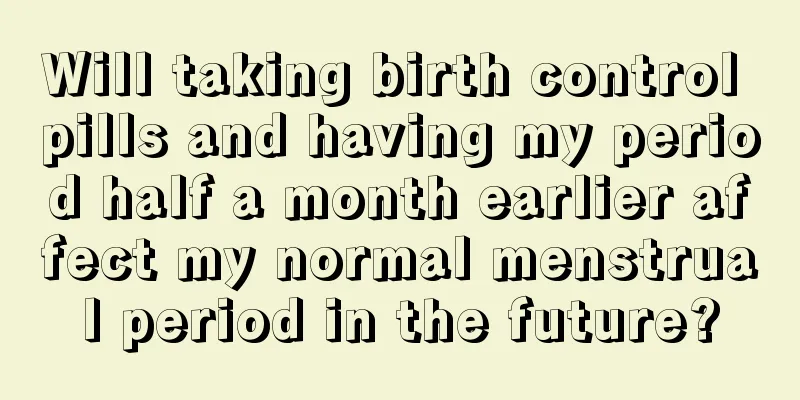Symptoms of insulin resistance in polycystic ovary syndrome

|
Polycystic insulin resistance refers to abnormal insulin secretion in women. When women have abnormal insulin secretion, the body will naturally show resistance symptoms. The symptoms of polycystic insulin resistance cannot be seen from the surface of the body. Professional instruments are needed to detect blood sugar and insulin fluctuations in the body. There are two common indicators for observing the symptoms of PCOS insulin resistance, namely OGTT result interpretation and INS result interpretation. Symptoms of insulin resistance in polycystic ovary syndrome OGTT result interpretation Blood sugar level <7.8mmol/L 2 hours after taking sugar is within the normal range and cannot be diagnosed as impaired glucose tolerance; blood sugar level >11.1mmol/L 1 hour after taking sugar should be treated as a high-risk patient for diabetes, and further insulin release tests should be performed to observe whether there is a delay in the peak of insulin secretion. INS result interpretation Fasting insulin is within the normal range, and the peak insulin secretion after taking sugar is 5 to 10 times the initial value; the insulin level reaches its peak within 0.5 to 1 hour after taking sugar on a fasting stomach; and returns to the normal value range within 3 hours after taking sugar on a fasting stomach. If the glucose tolerance test results are normal but the insulin release test results are abnormal, there is also a problem. How to determine insulin resistance If you want to determine whether you have insulin resistance, you need to go to a regular medical institution to do these two tests - oral glucose tolerance test (OGTT) and insulin release test (INS). These two trials measure blood sugar levels and insulin levels after quantitative oral glucose intake during fasting to understand pancreatic beta cell function and the body's ability to regulate blood sugar. What is Insulin Resistance Insulin is the only hormone in our body that can lower blood sugar. It participates in and regulates sugar metabolism. Controlling blood sugar balance is the main function of insulin in the human body. Insulin resistance actually means that the efficiency of insulin is reduced, and it cannot reduce the glucose in the blood to normal levels within a normal time frame. Therefore, the body needs to secrete more insulin to complete the task of "sugar metabolism", which causes the body to be in a high insulin state for a long time. |
<<: What to do if you have breast pain
>>: Improved skin in early pregnancy
Recommend
Can you get pregnant ten days before your period?
For women, getting pregnant with a healthy baby i...
What should pregnant women do if they have bloating after eating too much?
What to do if pregnant women have bloating? Quick...
Discomfort and burning sensation in the vagina
In life, some women may be infected with gynecolo...
What causes women to snore?
When it comes to snoring, we may think of some ma...
Causes of postpartum milk deficiency
Breast milk is the main food for newborns. It con...
Correct posture for breastfeeding while lying down
As the saying goes, raising children makes you re...
What to do if you have hemorrhoids during menstruation
There are many situations that female friends may...
Thigh pain during menstruation
Thigh pain is a common symptom, which can cause g...
Can I dye or perm my hair during menstruation?
Nowadays, many young girls dye their hair in vari...
Why do I feel bloated after having sex?
After sexual intercourse, the abdomen becomes blo...
What to do if you have sex during menstruation
Sex life is a catalyst for feelings at the moment...
How to treat vulvar itching with odor?
Vulvar itching and odor are mostly caused by gyne...
What to do if you can't breathe during pregnancy
Shortness of breath during pregnancy is a very co...
Yellow leucorrhea with blood streaks
Whether the secretion is normal has a great impac...









